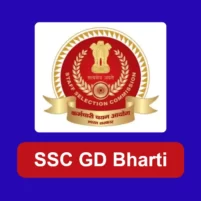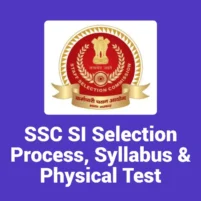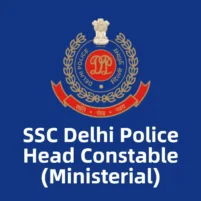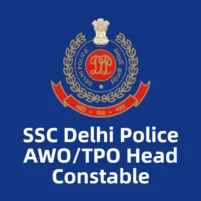Staff Selection Commission has invited applications for filling up the following 1340 Vacancies of Junior Engineer (Civil, Electrical and Mechanical) in BRO, CWC, CPWD, MES, NTRO etc departments. All eligible male and female candidates can apply online for the SSC JE Bharti Vacancies through ssc.gov.in till 21st Jul 2025. SSC Junior Engineer Exam and Syllabus 2025-2026 like vacancy details, eligibility criteria, online application form, selection process, notification etc info is given below.
SSC Junior Engineer Vacancies 2025-2026
Pay Scale – Rs 35400-112400 Pay matrix level-6 (Old scale Rs 9300-34800 with GP Rs 4200).
Total Number of Vacancies (Tentative) – 1340 Posts (Group B).
Age Limit (As on 01.01.2026):
For CPWD JE Civil/ Electrical – Maximum 32 Years i.e. candidate must be born between 02-01-1994 and 01-01-2008.
All Other JE Posts – Maximum 30 Years i.e. candidate must be born between 02-01-1996 and 01-01-2008.
Relaxation in upper age limit for SC, ST, OBC, Ex-Servicemen and other categories will be applicable as per Govt rules.
Educational Qualification – Degree/ Diploma in relevant Engineering branch (Civil/ Electrical/ Mechanical Engineering) from a Govt recognized University/ Institute/ Board.
See also: UKPSC JE Recruitment and Exam Syllabus (1000+ Posts)
SSC JE Posts List and Vacancy Details
Border Roads Organization (BRO):
Junior Engineer (Civil)
Junior Engineer (Electrical & Mechanical)
Brahmaputra Board, Ministry of Jal Shakti:
Junior Engineer (Civil)
Central Water Commission (CWC):
Junior Engineer (Civil)
Junior Engineer (Mechanical)
Central Public Works Department (CPWD):
Junior Engineer (Civil)
Junior Engineer (Electrical)
Central Water and Power Research Station:
Junior Engineer (Electrical)
Junior Engineer (Civil)
DGQA-NAVAL, Ministry of Defence:
Junior Engineer (Mechanical)
Junior Engineer (Electrical)
Farakka Barrage Project (FBP):
Junior Engineer (Civil)
Junior Engineer (Electrical)
Military Engineering Services (MES):
Junior Engineer (Civil)
Junior Engineer (Electrical & Mechanical)
National Technical Research Organization (NTRO):
Junior Engineer (Civil)
Note: Post wise and category wise tentative/ final vacancies are to be notified which will be updated above soon. Only male candidates are eligible for the posts of Junior Engineer in the Border Roads Organization (BRO). Candidates applying for the posts of Junior Engineer in BRO will satisfy themselves that they fulfill the Physical Efficiency Test, Physical and Medical Standards.
See also: SSC CPO SI Selection Process, PST PET and Exam Syllabus
SSC JE Selection Process and Exam Pattern
The recruitment process consists of a Computer Based Examination consisting of Paper-I and Paper-II. The exam will consist of objective type multiple choice questions only which will be in both Hindi and English. The duration of each paper will be 02 Hours. There will be negative marking equal to one-third of the marks allotted to the question for each wrong answer in Paper-I and Paper-II.
Paper-I Examination:
- General Intelligence and Reasoning: 50 Questions (50 Marks)
- General Awareness: 50 Questions (50 Marks)
- Part A- General Engineering (Civil & Structural) or Part B- General Engineering (Electrical) or Part C- General Engineering (Mechanical): 100 Questions (100 Marks)
Paper-II Examination:
- Part A- General Engineering (Civil & Structural) or Part B- General Engineering (Electrical) or Part C- General Engineering (Mechanical): 100 Questions (300 Marks)
The latest SSC JE syllabus for Paper I & II Exam 2025-2026 provided by the commission is given below in detail.
Candidates will have to attempt the General Engineering part (i.e. Part A or Part B or Part C) in Paper-I and Paper-II, which has been selected by them in the online application form, on the basis of their Educational Qualification.
Based on the normalized marks scored in the Paper-I Examination, candidates will be shortlisted category-wise to appear in Paper-II. Minimum qualifying marks in Paper-I and Paper-II are 30% for UR, 25% for OBC/ EWS and 20% for all other categories.
Final selection and allocation of Post/ Organization/ Office will be made on the basis of the performance of candidates in Paper-I and Paper-II and the preference exercised by them.
See also: SSC CGL Recruitment 14582 Group C and B Posts 2025-2026
Examination Centres
Central Region (Bihar and Uttar Pradesh) – Bhagalpur, Muzaffarpur, Patna, Agra, Bareilly, Gorakhpur, Jhansi, Kanpur, Lucknow, Meerut, Prayagraj, Varanasi and Gaya.
Eastern Region (A&N Islands, Jharkhand, Odisha, Sikkim and West Bengal) – Sri Vijaya Puram, Dhanbad, Jamshedpur, Ranchi, Balasore, Behrampur Ganjam, Bhubaneshwar, Cuttack, Kalyani, Rourkela, Sambalpur, Gangtok, Asansol, Kolkata, Siliguri, Burdwan, Durgapur, Suri and Dhenkanal.
Karnataka Kerala Region (Lakshadweep, Karnataka and Kerala) – Belagavi, Bengaluru, Hubballi, Kalaburagi (Gulbarga), Mangaluru, Mysuru, Shivamogga, Udupi, Ernakulam, Kollam, Kottayam, Kozhikode, Thiruvananthapuram, Thrissur, Kannur and Kavaratti.
Madhya Pradesh Region (Chhattisgarh and Madhya Pradesh) – Bhopal, Gwalior, Indore, Jabalpur, Satna, Sagar, Ujjain, Bilaspur, Raipur and Durg-Bhilai.
North Eastern Region (Arunachal Pradesh, Assam, Manipur, Meghalaya, Mizoram, Nagaland and Tripura) – Itanagar, Dibrugarh, Guwahati (Dispur), Jorhat, Silchar, Tejpur, Imphal, Churachandpur, Ukhrul, Shillong, Aizwal, Dimapur, Kohima and Agartala.
Northern Region (Delhi, Rajasthan and Uttarakhand) – Delhi NCR, Ajmer, Bikaner, Jaipur, Jodhpur, Sikar, Udaipur, Dehradun, Haldwani and Roorkee.
North Western Region (Chandigarh, Haryana, Himachal Pradesh, Jammu and Kashmir and Punjab) – Chandigarh, Hamirpur, Shimla, Jammu, Leh, Samba, Srinagar (J&K), Bathinda, Amritsar, Jalandhar, Patiala and Ludhiana.
Southern Region (Andhra Pradesh, Puducherry, Tamil Nadu and Telangana) – Chirala, Guntur, Kakinada, Kurnool, Nellore, Rajahmundry, Tirupati, Vijaywada, Vishakhapatnam, Vizianagaram, Srikakulam, Eluru, Puducherry, Chennai, Coimbatore, Madurai, Salem, Tiruchirapalli, Tirunelveli, Vellore, Krishnagiri, Hyderabad, Karimnagar, Warangal and Ongole.
Western Region (Dadra and Nagar Haveli, Daman and Diu, Goa, Gujarat and Maharashtra) – Panaji, Ahmedabad, Anand, Gandhinagar, Mehsana, Rajkot, Surat, Vadodara, Amravati, Chhatrapati Sambhaji Nagar, Jalgaon, Kolhapur, Mumbai, Nagpur, Nanded, Nashik and Pune.
See also: RRB Junior Engineer Recruitment (7951 Vacancies)
Application form, Important Dates and Notification
Eligible and interested candidates can submit their online application for the SSC JE Recruitment Engineer Vacancies through the website ssc.gov.in from 30th Jun to 21st Jul 2025. Candidates are advised to go through the official advertisement or recruitment notification by downloading through the link below.
Application fee – Rs 100/- (Rupees One Hundred only).
The fee can be paid through online payment mode using BHIM UPI, Net Banking or by using Visa, MasterCard, Maestro, or RuPay Credit or Debit card. SC, ST, Physically Handicapped, Ex-serviceman and Women candidates are exempted from payment of fee.
Important Dates:
Start of online form submission – 30th Jun 2025
Last date for submission of online form – 21st Jul 2025 (11 PM)
Last date of fee payment (online) – 22nd Jul 2025 (11 PM)
Application form correction – 01st Aug to 02nd Aug 2025 (11 PM)
Paper I Exam date – 27th to 31st October 2025
Paper II Exam date – Jan-Feb 2026
Register and submit online application form for the SSC JE Recruitment by visiting at the direct link provided below. For more details about the Junior Engineer Exam 2025-26, you can download the official Recruitment Notification in pdf format.
See also: Indian Navy BTech Entry 10+2 Cadet Scheme 2025-2026
SSC JE Syllabus Paper I & II Exam 2025-2026 (Detailed)
The standard of the questions in Engineering subjects will be approximately at the level of a Diploma in Engineering (Civil/ Mechanical/ Electrical). The latest and detailed SSC JE Syllabus for Paper I & II Exam 2025-2026 as provided by the commission is as follows:
Paper I Examination
General Intelligence and Reasoning
The Syllabus for General Intelligence would include questions of both verbal and non-verbal types. The test may include questions on analogies, similarities, differences, space visualization, problem solving, analysis, judgment, decision-making, visual memory, discrimination, observation, relationship concepts, arithmetical reasoning, verbal and figure classification, arithmetical number series etc.
The test will also include questions designed to test the candidate’s abilities to deal with abstract ideas and symbols and their relationships, arithmetical computations and other analytical functions.
General Awareness
Questions will be aimed at testing the candidate’s general awareness of the environment around him and its application to society. Questions will also be designed to test knowledge of current events and such matters of everyday observations and experience in their scientific aspect as may be expected of any educated person.
The test will also include questions relating to India and its neighboring countries especially pertaining to History, Culture, Geography, Economic Scene, General Polity and Scientific Research, etc. These questions will be such that they do not require a special study of any discipline.
General Engineering (Civil & Structural, Electrical and Mechanical):
Part-A (Civil Engineering)
Building Materials, Estimating, Costing and Valuation, Surveying, Soil Mechanics, Hydraulics, Irrigation Engineering, Transportation Engineering, Environmental Engineering.
Structural Engineering: Theory of Structures, Concrete Technology, RCC Design, Steel Design.
Part-B (Electrical Engineering)
Basic concepts, Circuit law, Magnetic Circuit, AC Fundamentals, Measurement and Measuring instruments, Electrical Machines, Fractional Kilowatt Motors and single-phase induction Motors, Synchronous Machines, Generation, Transmission and Distribution, Estimation and Costing, Utilization and Electrical Energy, Basic Electronics.
Part-C (Mechanical Engineering)
Theory of Machines and Machine Design, Engineering Mechanics and Strength of Materials, Properties of Pure Substances, 1st Law of Thermodynamics, 2nd Law of Thermodynamics, Air standard Cycles for IC Engines, IC Engine Performance, IC Engines Combustion, IC Engine Cooling & Lubrication, Rankine cycle of System, Boilers, Classification, Specification, Fitting & Accessories, Air Compressors & their cycles, Refrigeration cycles, Principle of Refrigeration Plant, Nozzles & Steam Turbines.
Properties & Classification of Fluids, Fluid Statics, Measurement of Fluid Pressure, Fluid kinematics, Dynamics of Ideal fluids, Measurement of Flow rate, Basic Principles, Hydraulic Turbines, Centrifugal Pumps, Classification of Steel.
Paper II Examination
Part-A (Civil & Structural Engineering)
Building Materials – Physical and Chemical properties, classification, standard tests, uses and manufacture/quarrying of materials e.g., building stones, silicate-based materials, cement (Portland), asbestos products, timber and wood-based products, laminates, bituminous materials, paints, varnishes.
Estimating, Costing and Valuation – Estimate, glossary of technical terms, analysis of rates, methods and unit of measurement.
Items of work- earthwork, Brick work (Modular & Traditional bricks), RCC work, Shuttering, Timber work, Painting, Flooring, Plastering, Boundary wall, Brick building, Water Tank, Septic tank, Bar bending schedule, Centre line method, Mid-section formula, Trapezodial formula, Simpson’s rule, Cost estimate of Septic tank, flexible pavements, Tube well, isolates and combined footings, Steel Truss, Piles and pile-caps.
Valuation- Value and cost, scrap value, salvage value, assessed value, sinking fund, depreciation and obsolescence, methods of valuation.
Surveying – Principles of surveying, measurement of distance, chain surveying, working of prismatic compass, compass traversing, bearings, local attraction, plane table surveying, theodolite traversing, adjustment of theodolite, Levelling, Definition of terms used in levelling, contouring, curvature and refraction corrections, temporary and permanent adjustments of dumpy level, methods of contouring, uses of contour map, tachometric survey, curve setting, earthwork calculation, advanced surveying equipment.
Soil Mechanics – Origin of soil, phase diagram, Definitions-void ratio, porosity, degree of saturation, water content, specific gravity of soil grains, unit weights, density index and interrelationship of different parameters, Grain size distribution curves and their uses.
Index properties of soils, Atterberg’s limits, ISI soil classification and plasticity chart Permeability of soil, coefficient of permeability, determination of coefficient of permeability, Unconfined and confined aquifers, effective stress, quick sand, consolidation of soils, Principles of consolidation, degree of consolidation, pre-consolidation pressure, normally consolidated soil, e- log p curve.
Computation of ultimate settlement Shear strength of soils, direct shear test, Vane shear test, Triaxial test Soil compaction, Laboratory compaction test, Maximum dry density and optimum moisture content, earth pressure theories, active and passive earth pressures, Bearing capacity of soils, plate load test, standard penetration test.
Hydraulics – Fluid properties, hydrostatics, measurements of flow, Bernoulli’s theorem and its application, flow through pipes, flow in open channels, weirs, flumes, spillways, pumps and turbines.
Irrigation Engineering – Definition, necessity, benefits, 2II effects of irrigation, types and methods of irrigation, Hydrology- Measurement of rainfall, run off coefficient, rain gauge, losses from precipitation- evaporation, infiltration, etc. Water requirement of crops, duty, delta and base period, Kharif and Rabi Crops, Command area, Time factor, Crop ratio, Overlap allowance, Irrigation efficiencies Different types of canals, types of canal irrigation.
Loss of water in canals Canal lining- types and advantages Shallow and deep to wells, yield from a well Weir and barrage, Failure of weirs and permeable foundation, Slit and Scour, Kennedy’s theory of critical velocity Lacey’s theory of uniform flow Definition of flood, causes and effects, methods of flood control, water logging, preventive measure Land reclamation, Characteristics of affecting fertility of soils, purposes, methods, description of land and reclamation processes Major irrigation projects in India.
Transportation Engineering – Highway Engineering- cross-sectional elements, geometric design, types of pavements, pavement materials- aggregates and bitumen, different tests, Design of flexible and rigid pavements- Water Bound Macadam (WBM) and Wet Mix Macadam (WMM), Gravel Road, Bituminous construction, Rigid pavement joint, pavement maintenance.
Highway drainage, Railway Engineering Components of permanent way- sleepers, ballast, fixtures and fastening, track geometry, points and crossings, track junction, stations and yards Traffic Engineering- Different traffic survey, speed-flow-density and their interrelationships, intersections and interchanges, traffic signals, traffic operation, traffic signs and markings, road safety.
Environmental Engineering – Quality of water, source of water supply, purification of water, distribution of water, the need of sanitation, sewerage systems, circular sewer, oval sewer, sewer appurtenances, sewage treatments Surface water drainage Solid waste management- types, effects, engineered management system Air pollution- pollutants, causes, effects, control Noise pollution- cause, health effects, control.
Structural Engineering – Theory of structures: Elasticity constants, types of beams- determinate and indeterminate, bending moment and shear force diagrams of simply supported, cantilever and over hanging beams Moment of area and moment of inertia for rectangular & circular sections, bending moment and shear stress for tee, channel and compound sections, chimneys, dams and retaining walls, eccentric loads, slope deflection of simply supported and cantilever beams, critical load and columns, Torsion of circular section.
Concrete Technology – Properties, Advantages and uses of concrete, cement aggregates, importance of water quality, water cement ratio, workability, mix design, storage, batching, mixing, placement, compaction, finishing and curing of concrete, quality control of concrete, hot weather and cold weather concreting, repair and maintenance of concrete structures.
RCC Design – RCC beams-flexural strength, shear strength, bond strength, design of singly reinforced and double reinforced beams, cantilever beams Tbeams, lintels One-way and two-way slabs, isolated footings Reinforced brick works, columns, staircases, retaining wall, water tanks (RCC design questions may be based on both Limit State and Working Stress methods).
Steel Design – Steel design and construction of steel columns, beams roof trusses plate girders.
Part-B (Electrical Engineering)
Basic concepts – Concepts of resistance, inductance, capacitance, and various factors affecting them Concepts of current, voltage, power, energy and their units.
Circuit Law – Kirchhoff’s law, Simple Circuit solution using network theorems.
Magnetic Circuit – Concepts of flux, mmf, reluctance, Different kinds of magnetic materials, Magnetic calculations for conductors of different configurations e.g., straight, circular, solenoidal, etc. Electromagnetic induction, self and mutual induction.
AC Fundamentals – Instantaneous, peak, RMS and average values of alternating waves, Representation of sinusoidal wave form, simple series and parallel AC Circuits consisting of RL and C, Resonance, Tank Circuit Poly Phase system- star and delta connection, 3 phase power, DC and sinusoidal response of R-Land R-Circuit.
Measurement and Measuring Instruments – Measurement of power (1 phase and 3 phase, both active and re-active) and energy, 2 wattmeter methods of 3 phase power measurement, Measurement of frequency and phase angle Ammeter and voltmeter (both moving oil and moving iron type), extension of range wattmeter, Multimeters, Megger, Energy meter, AC Bridges, Use of CRO, Signal Generator, CT, PT and their uses, Earth Fault detection.
Electrical Machines – (a) DC Machine- Construction, Basic Principles of DC motors and generators, their characteristics, speed control and starting of DC Motors Method of braking motor, Losses and efficiency of DC Machines.
(b) 1 phase and 3 phase transformers- Construction, Principles of operation, equivalent circuit, voltage regulation, OC and SC Tests, Losses and efficiency Effect of voltage, frequency and wave form on losses Parallel operation of 1 phase /3 phase transformers Auto transformers
(c) 3 phase induction motors, rotating magnetic field, principle of operation, equivalent circuit, torque-speed characteristics, starting and speed control of 3 phase induction motors Methods of braking, effect of voltage and frequency variation on torque speed characteristics.
Fractional Kilowatt Motors and Single-Phase Induction Motors: Characteristics and applications.
Synchronous Machines – Generation of 3-phase emf armature reaction, voltage regulation, parallel operation of two alternators, synchronizing, control of active and reactive power Starting and applications of synchronous motors.
Generation, Transmission and Distribution – Different types of power stations, Load factor, diversity factor, demand factor, cost of generation, inter-connection of power stations Power factor improvement, various types of tariffs, types of faults, short circuit current for symmetrical faults Switchgears- rating of circuit breakers, Principles of arc extinction by oil and air, HRC Fuses, Protection against earth leakage / over current, etc.
Buchholtz relay, Merz-Price system of protection of generators & transformers, protection of feeders and bus bars Lightning arresters, various transmission and distribution system, comparison of conductor materials, efficiency of different system Cable- Different type of cables, cable rating and derating factor.
Estimation and Costing – Estimation of lighting scheme, electric installation of machines and relevant IE rules Earthing practices and IE Rules.
Utilization of Electrical Energy – Illumination, Electric heating, Electric welding, Electroplating, Electric drives and motors.
Basic Electronics – Working of various electronic devices e.g. P N Junction diodes, Transistors (NPN and PNP type), BJT and JFET Simple circuits using these devices.
Part-C (Mechanical Engineering)
Theory of Machines and Machine Design – Concept of simple machine, four bar linkage and link motion, Flywheels and fluctuation of energy, Power transmission by belts- V-belts and Flat belts, Clutches- Plate and Conical clutch, Gears- Type of gears, gear profile and gear ratio calculation, Governors- Principles and classification, Riveted joint, Cams, Bearings, Friction in collars and pivots.
Engineering Mechanics and Strength of Materials – Equilibrium of Forces, Law of motion, Friction, Concepts of stress and strain, Elastic limit and elastic constants, bending moments and shear force diagram, Stress in composite bars, Torsion of circular shafts, Bucking of columns–Euler’s and Rankin’s theories, Thin-walled pressure vessels.
Thermal Engineering:
Properties of Pure Substances – p-v & P-T diagrams of pure substance like H2O, Introduction of steam table with respect to steam generation process; definition of saturation, wet & superheated status Definition of dryness fraction of steam, degree of superheat of steam H-s chart of steam (Mollier’s Chart).
1st Law of Thermodynamics – Definition of stored energy & internal energy, 1st Law of Thermodynamics of cyclic process, Non-Flow Energy Equation, Flow Energy & Definition of Enthalpy, Conditions for Steady State Steady Flow; Steady State Steady Flow Energy Equation.
2nd Law of Thermodynamics – Definition of Sink, Source Reservoir of Heat, Heat Engine, Heat Pump & Refrigerator; Thermal Efficiency of Heat Engines & co-efficient of performance of Refrigerators, Kelvin- Planck & Clausius Statements of 2nd Law of Thermodynamics, Absolute or Thermodynamic Scale of temperature, Clausius Integral, Entropy, Entropy change calculation of ideal gas processes Carnot Cycle & Carnot Efficiency, PMM-2; definition & its impossibility.
Air Standard Cycles for IC Engines – Otto cycle; plot on P-V, T-S Planes; Thermal Efficiency, Diesel Cycle; Plot on P-V, T-S planes; Thermal efficiency. IC Engine Performance, IC Engine Combustion, IC Engine Cooling & Lubrication.
Rankine Cycle of Steam – Simple Rankine cycle plot on P-V, T-S, h-s planes, Rankine cycle efficiency with & without pump work, Boilers; Classification; Specification; Fittings & Accessories: Fire Tube & Water Tube Boilers, Air Compressors & their cycles; Refrigeration cycles; Principle of a Refrigeration Plant; Nozzles & Steam Turbines.
Fluid Mechanics & Machinery:
Properties & Classification of Fluid – ideal & real fluids, Newton’s law of viscosity, Newtonian and Non-Newtonian fluids, compressible and incompressible fluids.
Fluid Statics – Pressure at a point.
Measurement of Fluid Pressure – Manometers, U-tube, Inclined tube.
Fluid Kinematics – Stream line, laminar & turbulent flow, external & internal flow, continuity equation.
Dynamics of ideal fluids – Bernoulli’s equation, Total head; Velocity head; Pressure head; Application of Bernoulli’s equitation.
Measurement of Flow rate Basic Principles – Venturi meter, Pilot tube, Orifice meter.
Hydraulic Turbines – Classifications, Principles.
Centrifugal Pumps – Classifications, Principles, Performance Production Engineering.
Classification of Steels – mild steel & alloy steel, Heat treatment of steel, Welding- Arc Welding, Gas Welding, Resistance Welding, Special Welding Techniques i.e., TIG, MIG, etc. (Brazing & Soldering), Welding Defects & Testing; NDT, Foundry & Casting- methods, defects, different casting processes, Forging, Extrusion, etc., Metal cutting principles, cutting tools, Basic Principles of machining with (i) Lathe (ii) Milling (iii) Drilling (iv) Shaping (v) Grinding, Machines, tools & manufacturing processes.
See also: SSC CHSL Exam 3131 DEO LDC JSA Vacancies 2025-2026
Search any information available on this site by the help of the search box above. You may visit later for other latest updates related to SSC Junior Engineer Recruitment, MES JE Vacancy, CPWD, CWC, Exam Syllabus etc.




I have filled up SSC JUNIOUR ENGINEERING (C,E,M ETC) examination 2015 .My registration id is 51250452258.I have completed my registration and Rs100 pay through visa card but I can not login to candidate login, it shows 'Information given by you is incorrect. Please enter the correct information.'
what should I do??
please tell me sir.
my email id is jayanta.64833482@gmail.com
mobile no is 9614761721
its just atechnical error occured from the server dont worry it will be cleared from some days jayanta gori
I am saroj kumar das,i have filled je 2015.my rgd no.51254432357.I have completed my registration and Rs100 pay through visa card but I can not login to candidate login, it shows 'Information given by you is incorrect. Please enter the correct information.'my mail id saroj.das20@gmail.com
i am not recived admit card till now kindly told me when will i recived ?
new revised date for ssc-je is 31 january but it clashes with gate 2016….so what happen for those students who fill the both of forms
Am a B.E civil holder.can I apply for J.E posts which needs 3 year diploma qualification?
I get 120 number in first paper ssc je 2015.how many number need me in second paper for final salection.?? Reply me si my WhatsApp number 9125607646
In Notification of SSC JE 2016, in eligibility criteria for CPWD(civil) only "diploma in civil" is written while for other post such as for Central water commission "Degree or Diploma in civil" is written….I have done BE so can I Choose CPWD in preference or not….
Sir I am an electronic student can I apply for this je post
total no of vaccany ssc jen me